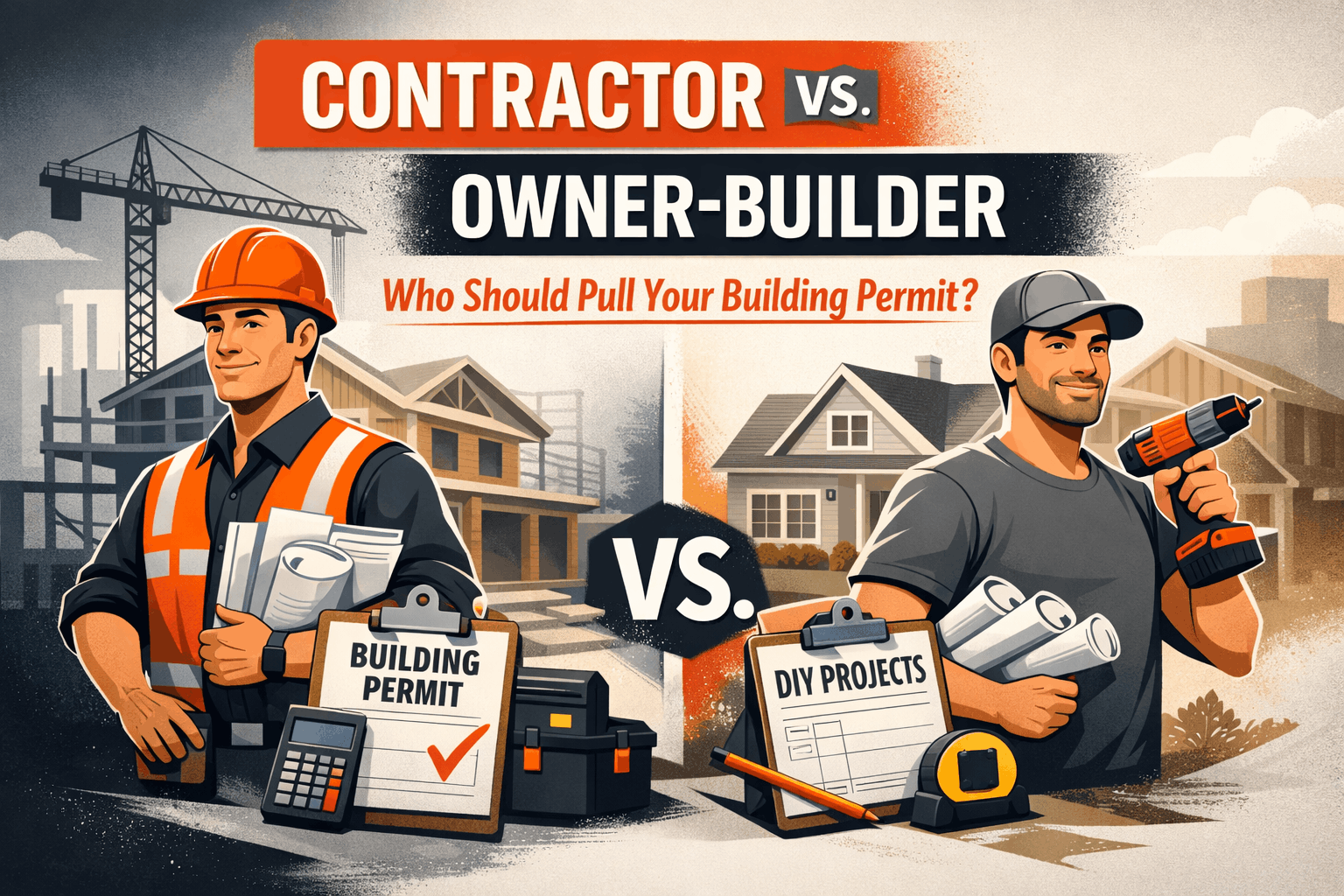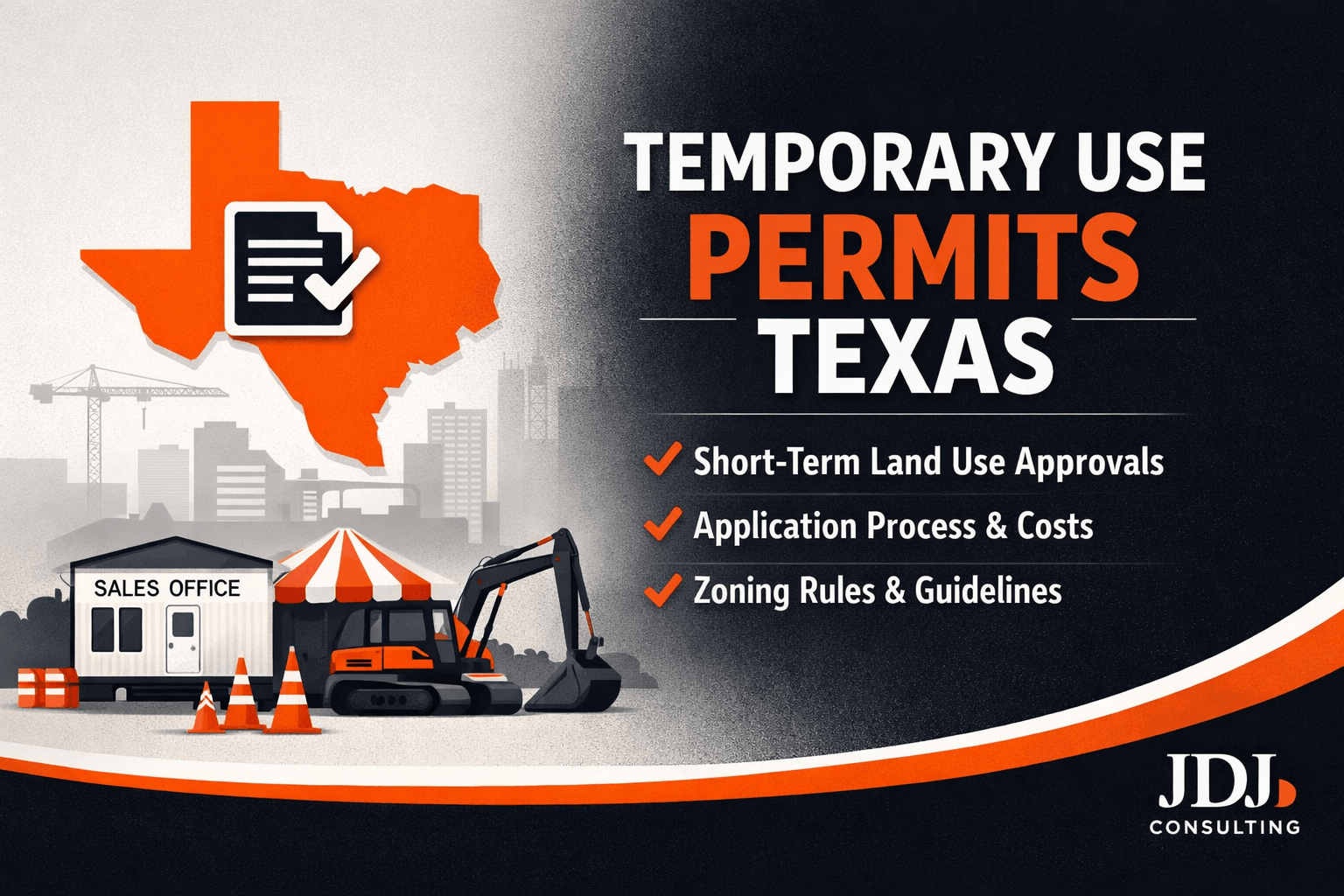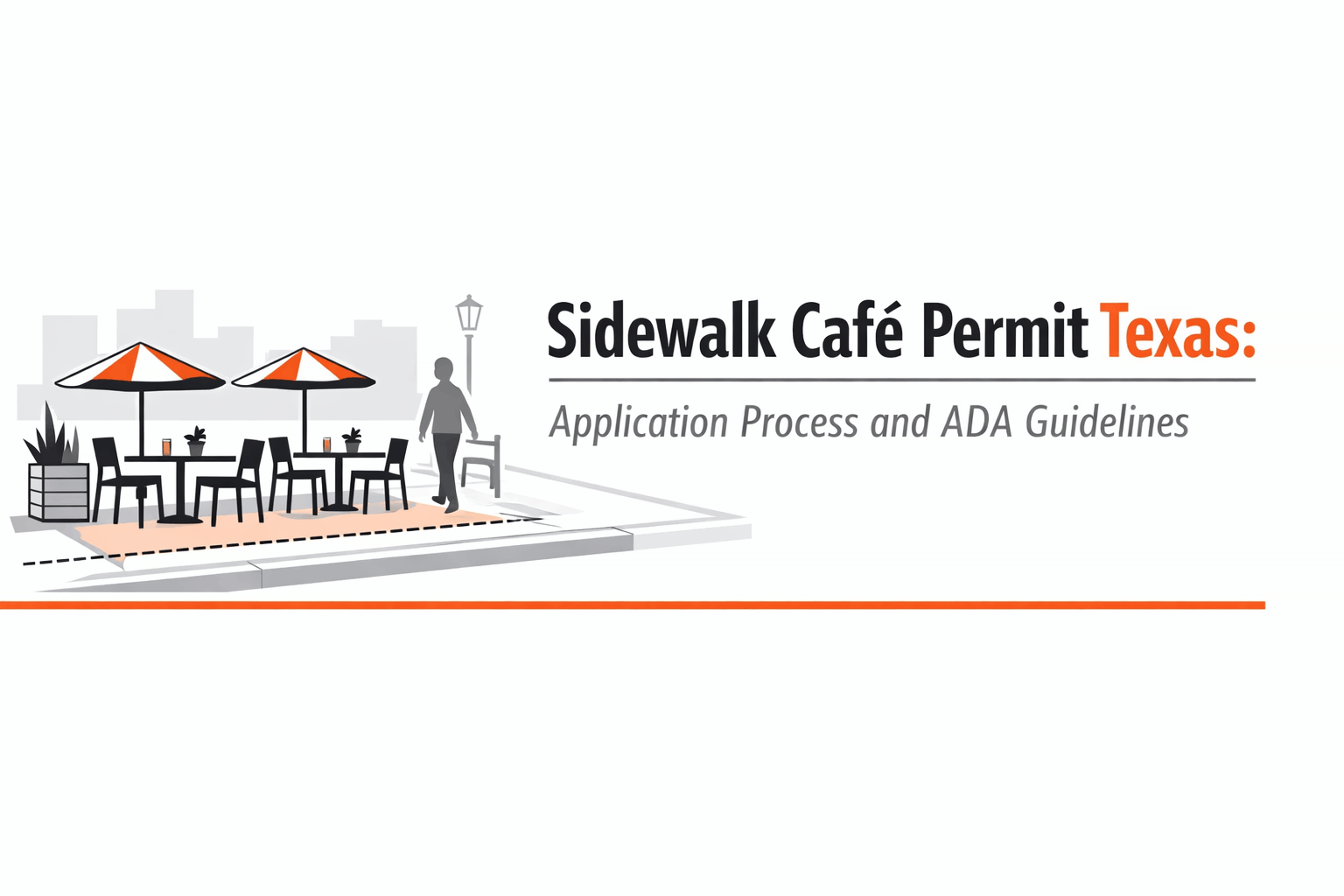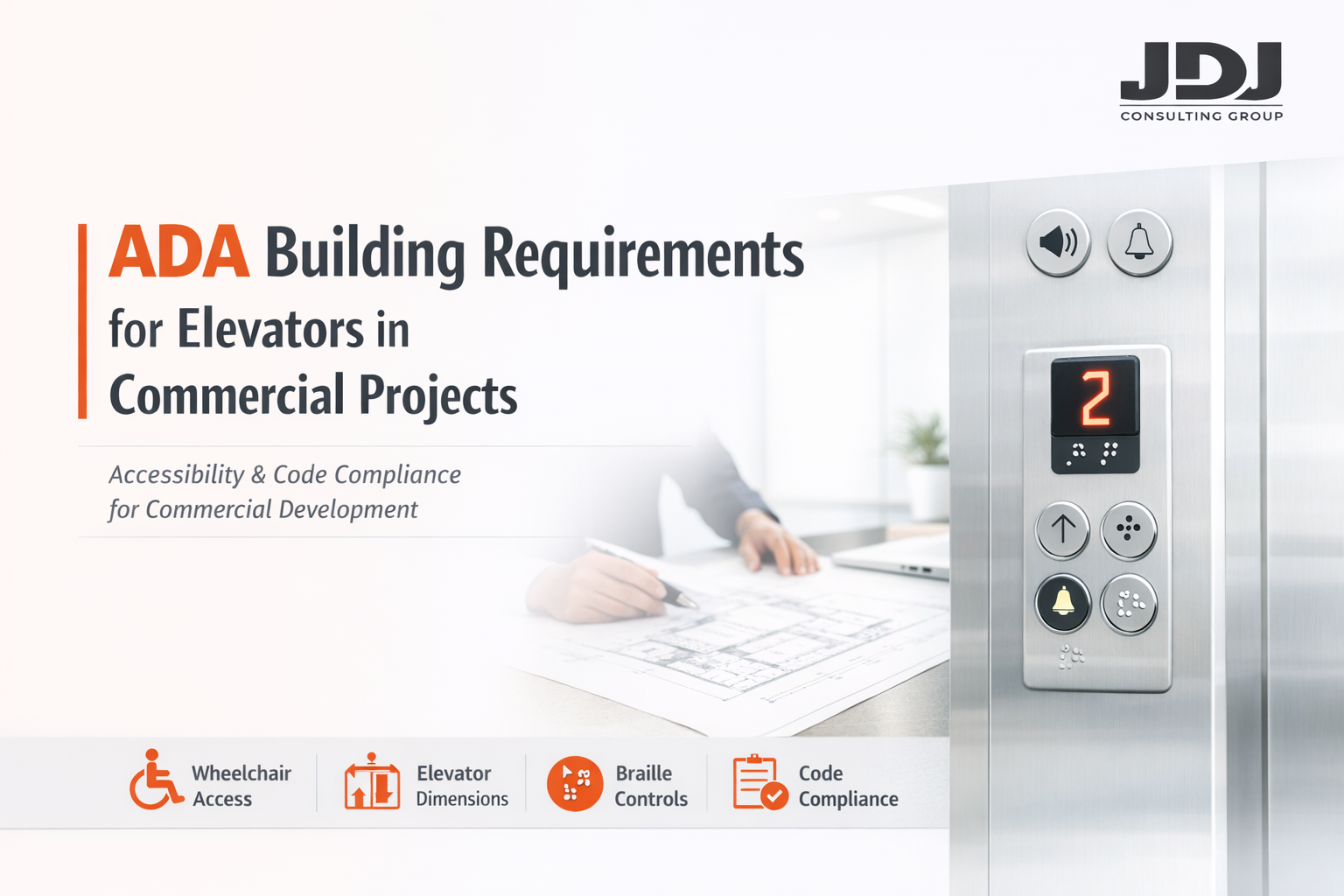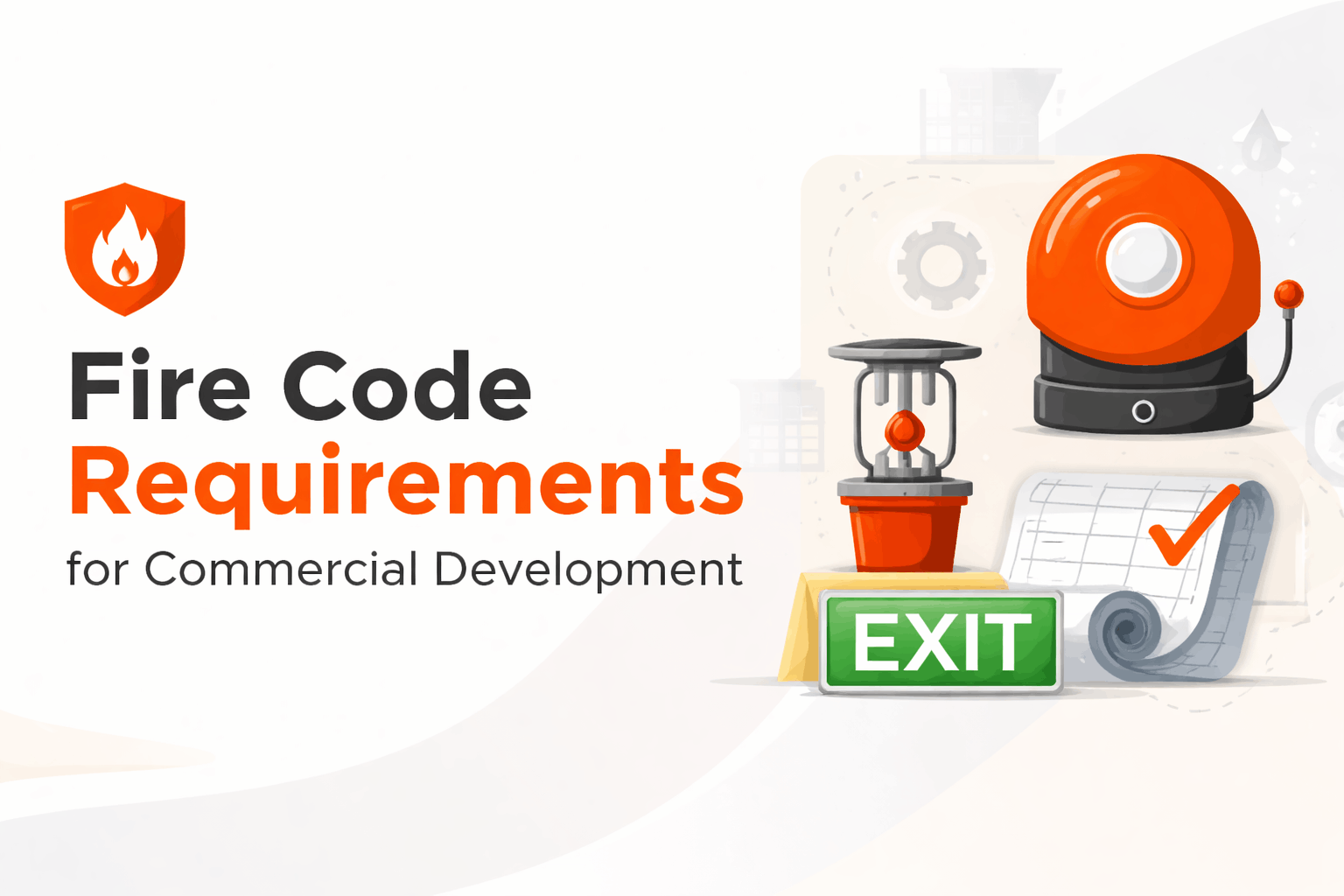If you’re planning a project in Los Angeles, one of the first questions you’ll face is: Do I need an entitlement, a building permit, or both?
Table of Contents
ToggleIt might sound simple, but misunderstanding the difference can cost time, money, and headaches. Some projects require both approvals, and each serves a different purpose in the development process.
In this guide, we’ll break down what entitlements are, how they differ from building permits, and what you need to know to plan your project effectively in Los Angeles.
What Are Entitlements in Los Angeles?
Definition and Purpose of Entitlements
Entitlements are legal approvals that give you the right to use or develop a property in a specific way.
Think of it this way: an entitlement lets you do something with the land—for example, build more units, change the land use, or adjust the property’s layout.

It does not mean you can start construction yet. That step comes later with a building permit.
Examples of common entitlements in L.A.:
Zoning variances or changes
Density bonuses for multi-family housing
Lot splits or parcel mergers
Entitlements are generally issued by the City of Los Angeles Department of City Planning and often require environmental review or public hearings.
When You Need an Entitlement
You might need an entitlement if your project:
Changes the land use (for instance, residential to commercial)
Exceeds the base zoning limits (height, density, or setbacks)
Requires a variance due to unusual site conditions
Involves subdividing land or merging parcels
Some minor projects don’t require entitlements, but it’s always smart to check early. Skipping this step can delay your project or trigger legal issues later.
Typical Entitlement Process in Los Angeles
The entitlement process in L.A. can be detailed and time-consuming. Here’s a simplified breakdown:
| Step | What Happens | Notes |
|---|---|---|
| Pre‑Application Review | Feasibility study, zoning check | Often includes consultation with City Planning staff |
| Application Submission | Submit plans and required documents | Fees vary by project type and complexity |
| Environmental Review | CEQA evaluation if applicable | Can add months to the process |
| Public Hearings | Neighbors and stakeholders may provide input | Required for major zoning changes or conditional use permits |
| Approval & Conditions | Entitlement granted with conditions | Must comply before applying for building permit |
The entire entitlement process can take several months, depending on the complexity and whether public hearings are required.
What Are Building Permits in Los Angeles?
Definition and Purpose of Building Permits
A building permit is your official approval to start construction. It confirms that your plans meet building codes, safety standards, and city regulations.
Unlike entitlements, a permit focuses on how the project is built, rather than whether it can be built.
Key points:
Issued by LADBS (Los Angeles Department of Building and Safety)
Covers construction, electrical, plumbing, and mechanical work
Ensures your project is safe and code-compliant
When You Need a Building Permit
Most construction or alteration projects require a building permit, including:
New construction (homes, ADUs, commercial buildings)
Major remodels (structural changes, additions)
Electrical, plumbing, or mechanical system installations
Demolition or grading projects
Certain façade improvements or exterior alterations
Even if your project does not require an entitlement, a building permit is almost always required before starting work.
Typical Permit Process in Los Angeles
The building permit process is more technical than entitlements, focusing on safety and code compliance:
| Step | What Happens | Notes |
|---|---|---|
| Plan Submission | Submit detailed construction plans to LADBS | Includes structural, electrical, plumbing, and mechanical plans |
| Plan Check | LADBS reviews plans for compliance | Multiple disciplines may be involved |
| Fee Payment | Pay permit and plan check fees | Fees depend on project type and construction value |
| Inspections | Conducted at key construction stages | Foundation, framing, electrical, plumbing, final inspection |
| Final Approval | Receive certificate of occupancy | Required before project is considered complete |
Permit timelines vary. Small residential projects may take weeks, while larger commercial projects can take months.
Entitlements vs. Building Permits: Side‑by‑Side Comparison
Understanding the difference between entitlements and building permits is crucial for any project in Los Angeles. Both approvals are important, but they serve different purposes and involve different agencies, processes, and timelines.
Here’s a clear comparison:
| Feature | Entitlements | Building Permits |
|---|---|---|
| Purpose | Gives the right to use or develop land in a certain way | Approves the actual construction or alteration of a building |
| Governing Department | City Planning, zoning boards, public hearings | LADBS (Department of Building and Safety) |
| Trigger | Changes in land use, zoning, density, or lot configuration | Construction, remodels, or systems installation |
| Public Involvement | Often high (hearings, community review) | Typically low, mostly technical review |
| Timeline | Several months or longer | Weeks to months, depending on complexity |
| Legal Effect | Grants right to pursue a project under certain conditions | Authorizes actual construction to begin |
| Cost Drivers | Consultant fees, environmental review, application fees | Plan check fees, inspection fees, construction value |
Key takeaway: Entitlements define what you can build, while permits define how you build it. Skipping one can cause major delays, fines, or redesign costs.
When Both Are Required
Some projects require both entitlements and building permits. For example:
Building a 50-unit apartment in Los Angeles usually requires a zoning approval or density bonus entitlement, followed by a full construction permit.
Subdividing a lot often triggers entitlement review first, then permits for grading or construction.
Tip: Always determine if your project triggers an entitlement before designing plans for permits. Doing it backward can lead to rejected plans and extra costs.
Common Scenarios
Residential remodel within zoning limits: Usually only a building permit is needed.
ADU exceeding standard height or setback: Requires entitlement first, then a building permit.
Commercial development changing land use: Both entitlement and permits are mandatory.
Why This Difference Matters
| Impact Area | Entitlements | Building Permits |
|---|---|---|
| Budget | Can be expensive upfront (consultants, public hearings) | Based on construction value, plan check, and inspections |
| Timeline | Often longer due to hearings and environmental review | Shorter, but can extend if plans are incomplete |
| Compliance Risk | High if skipped — can stop project before construction | High if skipped — can result in fines, stop-work orders, or illegal occupancy |
Understanding the distinction helps you plan effectively, avoid unnecessary delays, and manage both costs and expectations.
Practical Steps: How to Handle Both Approvals Smoothly
Managing both entitlements and building permits in Los Angeles can seem complicated. But with a clear process, you can reduce delays, avoid extra costs, and keep your project on track.
Here’s a step-by-step approach.
Step 1: Early Feasibility Study
Before designing or submitting plans:
Check zoning rules for your property.
Confirm if your project triggers any entitlement requirements (e.g., variances, density bonuses, lot splits).
Identify site conditions that could affect approvals, like slope, flood risk, or historic designation.
Doing this early can prevent surprises later and save time.
Step 2: Determine Entitlement Needs
Ask yourself:
Does the project change the land use?
Does it exceed zoning limits for height, density, or setbacks?
Does it require lot line adjustments or environmental review?
If yes, prepare an entitlement application first. This ensures your project complies with city planning rules before you invest in detailed construction plans.
Step 3: Prepare for the Entitlement Process
Submit required documents and fees to the Los Angeles Department of City Planning.
Be ready for public hearings or neighborhood input if your project triggers community review.
Factor in CEQA review if environmental assessment is required.
The goal: secure entitlement approval so your building permit process runs smoothly later.

Step 4: Coordinate Permit Preparation
Once entitlements are approved (or if none are needed):
Prepare detailed construction plans for LADBS submission.
Include structural, electrical, plumbing, and mechanical plans.
Confirm that the plans match zoning conditions set by the entitlement.
Step 5: Submit Plans and Track Progress
Submit construction plans to LADBS.
Track plan checks and respond to any corrections promptly.
Schedule inspections in advance for critical phases.
Efficient tracking ensures you avoid delays or re-inspection fees.
Step 6: Avoid Common Pitfalls
Skipping entitlement review for projects that need it.
Submitting incomplete or unclear plans to LADBS.
Ignoring community input where hearings are required.
Underestimating the time and cost of approvals.
A small oversight can add months and thousands of dollars to your project.
Step 7: Work with Professionals
Hiring a permit or land-use consultant can make a huge difference:
They review your project feasibility and entitlement needs.
Help prepare complete, code-compliant plans.
Liaise with City Planning and LADBS to speed approvals.
At JDJ Consulting, our team coordinates entitlement and permit processes so you can focus on design and construction.
Quick Checklist for Smooth Approval
| Task | Notes |
|---|---|
| Feasibility Study | Check zoning, site, and entitlement needs |
| Entitlement Application | Prepare docs, pay fees, attend hearings |
| Construction Plans | Match zoning, include all disciplines |
| Permit Submission | Submit complete plans to LADBS |
| Track Reviews & Inspections | Respond to corrections, schedule inspections |
| Final Approval | Obtain certificate of occupancy |
Summary: Proper planning and coordination between entitlements and permits can save months of delays, reduce fees, and prevent legal issues. Start early, follow the steps, and involve professionals where necessary.

Conclusion: Aligning Entitlements and Permits for Project Success
Understanding the difference between entitlements and building permits is essential for any development project in Los Angeles.
Entitlements define what you can build or change on your property.
Building permits define how you build it while meeting safety and code requirements.
Skipping either step—or doing them in the wrong order—can lead to costly delays, rework, or fines.
Key Takeaways
Plan early: Check zoning and entitlement requirements before designing your project.
Coordinate processes: Handle entitlement and permit planning together to reduce delays.
Prepare complete plans: Clear, code-compliant construction documents help speed up LADBS review.
Consider professionals: Consultants like JDJ can streamline approvals, reduce mistakes, and save time and money.
Budget and schedule wisely: Factor in both entitlement and permit timelines and fees for accurate planning.
By understanding these steps and staying proactive, you can avoid common pitfalls, manage your project efficiently, and make the approval process as smooth as possible.
Partner with JDJ Consulting Group
Planning a new project in Los Angeles? Let JDJ Consulting guide you through entitlements and building permits. We help you:
Identify necessary approvals early
Prepare complete, code-compliant plans
Reduce delays and unexpected costs
Contact us today to ensure your project stays on track from zoning to construction.

FAQs: Entitlements vs. Building Permits in Los Angeles
What is an entitlement in Los Angeles?
An entitlement is official approval from the city allowing you to use or develop land in a certain way.
Examples: zoning changes, variances, conditional use permits (CUPs), lot splits.
It does not allow construction yet.
Entitlements set the legal framework so you know what you can build before applying for building permits.
What is a building permit?
A building permit is the formal approval to begin construction.
Ensures your project meets safety and building codes.
Covers structural, electrical, plumbing, and mechanical work.
Issued by LADBS, not City Planning.
Think of it as the green light to start building once all entitlements and plans are approved.
Do all projects need entitlements?
Not all projects. You need entitlements if your project:
Changes land use
Exceeds zoning limits (height, density, setbacks)
Requires variances or lot adjustments
Minor remodels within zoning limits often only require building permits.
Can I start construction after getting an entitlement?
No. An entitlement only grants the right to pursue a project under certain conditions. You must still submit construction plans and obtain a building permit from LADBS before starting work.
What is the difference between entitlement and permit timelines?
Entitlements often take months, especially if public hearings or CEQA reviews are required.
Building permits can take weeks to months, depending on complexity and plan completeness.
Planning for both helps avoid delays and keeps the project on schedule.
Who issues entitlements and building permits?
Entitlements: City of Los Angeles Department of City Planning, zoning boards, or public review committees.
Building permits: Los Angeles Department of Building and Safety (LADBS).
Both agencies coordinate but handle different approval aspects.
Do entitlements have costs?
Yes. Typical costs include:
Application and processing fees
Consultant or attorney fees for complex projects
Environmental review (CEQA) costs
Entitlement costs are upfront, often before construction starts, and vary by project complexity.
Do building permits have costs?
Yes. Permit fees are usually calculated based on:
Project type (residential, ADU, commercial)
Construction value
Number of inspections
Additional fees may include plan checks, technology surcharges, and re-inspection fees.
Can I skip entitlements if my project is small?
Possibly. If the project does not exceed zoning rules or require changes in land use, entitlements may not be necessary.
Examples: small interior remodels, minor exterior repairs, standard ADU within limits.
Always check with City Planning to be sure.
What happens if I start building without a permit?
Starting without a permit can result in:
Stop-work orders
Fines and penalties
Requirement to obtain retroactive permits, often at higher cost
Legal issues during resale or inspection
It’s critical to secure permits before construction begins.
Can entitlements affect permit approval?
Yes. Permits must align with entitlement conditions.
If your permit plans violate entitlement conditions, LADBS may reject them.
Always review entitlement requirements before designing construction plans.
How long does it take to get an entitlement in L.A.?
Typical timelines:
Minor variances or adjustments: 2–3 months
Major projects with hearings/CEQA review: 6–12 months or longer
Time varies by project scope, public involvement, and environmental review requirements.
How long does it take to get a building permit in L.A.?
Small residential projects: 2–4 weeks
Larger remodels or commercial projects: 1–3 months
Delays occur if plans are incomplete or require multiple corrections
Digital submissions via LADBS can reduce review time.
Are public hearings required for all entitlements?
Not always. Public hearings are required when:
Land use changes significantly
Zoning variances are requested
Projects exceed standard density or height limits
Smaller, standard projects may receive administrative approval without hearings.
Do building permits require inspections?
Yes. LADBS inspections ensure work complies with building codes.
Common inspections: foundation, framing, electrical, plumbing, mechanical, final inspection
Each inspection may incur additional fees if re-inspection is required.
What if my project needs both entitlement and permit?
Some projects require both:
Example: building a multi-unit apartment or ADU exceeding zoning limits
Process: secure entitlement approval first, then submit construction plans for building permits
Coordination avoids delays, rework, and extra fees.
Can a consultant help with entitlements and permits?
Yes. Consultants can:
Identify which approvals you need
Prepare complete plans for City Planning and LADBS
Liaise with agencies to expedite approvals
Save time, reduce errors, and prevent costly delays
Are permit and entitlement fees refundable?
Partial refunds may be possible for unused plan checks or inspections, but:
Administrative costs are usually non-refundable
Refund requests often have strict time limits
Always check with LADBS and City Planning for rules.
How can I reduce entitlement and permit costs?
Submit complete, error-free plans
Use digital submissions to save on printing and courier fees
Combine permit scopes when possible
Apply for fee waivers or incentives (affordable housing, energy-efficient projects)
A consultant can help identify cost-saving strategies.

